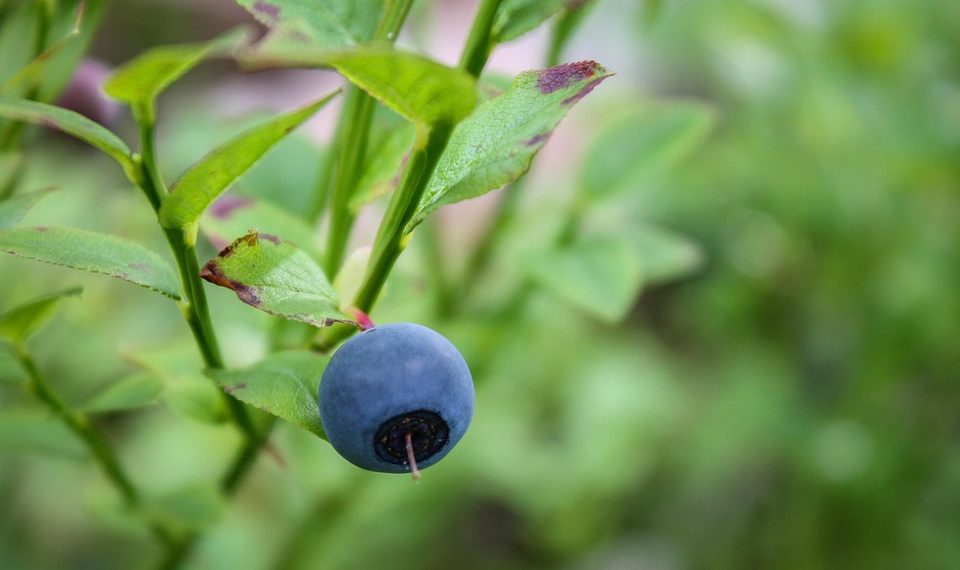Ever felt that annoying urge to run to the bathroom just after sipping your favorite juice? It’s a common experience, one that often brings to mind the delicate balance between hydration and bladder health. But not all drinks are created equal when it comes to benefiting our bladders. Enter blueberry juice—a vibrant, flavorful beverage that not only tantalizes your taste buds but also offers surprising health benefits for your bladder.
This article explores seven ways blueberry juice can boost bladder health naturally, providing you with evidence-backed insights to make informed choices about your diet. Whether it’s reducing inflammation or supporting urinary tract health, understanding the roles that blueberry juice can play may just encourage you to pour a glass more often.
Contents
1. Packed with Antioxidants
One of the standout features of blueberries is their high antioxidant content, particularly anthocyanins, which give the berries their rich color. Antioxidants play a crucial role in protecting the body against oxidative stress, which can contribute to chronic inflammation and damage to the bladder tissue.
In a 2018 study published in the Journal of Nutritional Biochemistry, researchers found that the intake of blueberry anthocyanins was linked to reduced oxidative stress in various tissues, including the bladder (1). This means that by consuming blueberry juice, you may not only enjoy the flavor but also contribute to a balanced inflammatory response in your bladder.
Limitations
While the antioxidant effects are promising, it’s essential to remember that results can vary based on individual health conditions and the quantity consumed. Relying solely on blueberry juice for bladder health might not be sufficient for everyone.
2. Promotes Urinary Tract Health
The urinary tract can be a sensitive area, easily affected by bacteria and infections. Blueberry juice may aid in maintaining urinary tract health by inhibiting the adhesion of harmful bacteria to the bladder walls. This organism-fighting ability is often compared to that of cranberries, which have garnered attention for similar benefits.
A study in the American Journal of Clinical Nutrition highlighted how blueberry juice helps reduce the incidence of urinary tract infections (UTIs) by preventing bacteria from sticking to the urinary lining (2). This protective mechanism could lead to a lower risk of infections, making blueberry juice a worthy addition to your daily regimen.
Limitations
It’s important to note that while blueberry juice may reduce the risk of UTIs, it should not replace medical advice or treatment. If you have recurrent infections, consulting a healthcare professional is essential.
3. Anti-Inflammatory Properties
Chronic inflammation is a key factor in many health issues, including problems related to the bladder. Blueberries contain polymorphic compounds that have demonstrated anti-inflammatory effects, potentially easing discomfort and irritation in the bladder.
Research published in the Journal of Food Science in 2020 showed how blueberry extract significantly reduced levels of inflammatory markers in animal models, suggesting beneficial effects on bladder inflammation (3). Regularly consuming blueberry juice may thus help in managing bladder-related discomfort over time.
Limitations
While blueberry juice contributes to reduced inflammation, it should complement a balanced diet and lifestyle. Overlooking other health factors can limit its beneficial impacts on bladder health.
4. Hydration Support
Hydration is fundamental for maintaining a healthy bladder. Blueberry juice, being high in water content, can contribute to your daily fluid intake. Hydrated individuals are less likely to experience urinary tract issues and can effectively flush out toxins and bacteria.
A balanced approach to fluid intake—combining water and nutrient-rich beverages like blueberry juice—ensures that your body stays well-hydrated. Studies indicate that even mild dehydration can lead to irritability in the bladder, making it essential to incorporate hydrating options in your diet (4).
Limitations
However, it’s wise to monitor sugar intake from beverages. While blueberry juice is nutritious, moderation is key here. Opt for 100% fruit juice options, and consider diluting them with water for a balanced drink.
5. Nutrients that Support Bladder Function
Blueberry juice is more than just antioxidants; it’s a rich source of vitamins and minerals that are beneficial for overall health, including bladder function. Vitamins C and K, along with manganese, found abundantly in blueberries, help support tissue repair and promote proper organ function.
According to a study published in Nutrients, vitamin C is particularly important for synthesizing collagen, vital for maintaining the integrity of the bladder lining (5). Including blueberry juice in your diet can therefore provide a nutrient boost that supports not just bladder health but overall well-being.
Limitations
While these nutrients are beneficial, it’s crucial to have a varied diet. Relying solely on blueberry juice can result in missing out on other essential nutrients found in different foods.
6. May Help Manage Blood Sugar Levels
Emerging research suggests that blueberries might play a role in managing blood sugar levels, which can be particularly advantageous for individuals with diabetes—a condition closely linked to urinary issues. Blueberry juice has been shown to improve insulin sensitivity, helping to balance blood sugar levels.
In a 2022 study in the Journal of Agricultural and Food Chemistry, researchers reported that blueberry consumption led to improved glycemic control in participants, thereby potentially benefiting bladder health by reducing excess glucose that might irritate bladder tissue (6). Maintaining stable blood sugar levels is integral for reducing the risk of side effects related to urinary health.
Limitations
If you have diabetes, it’s important to monitor how your body responds to different foods, including blueberry juice. Always consult your healthcare provider for tailored dietary advice.
7. Supports Healthy Aging
As we age, bladder health becomes increasingly important. Blueberries are often associated with long-term health benefits that lend themselves to healthy aging, potentially delaying the onset of age-related bladder issues. The flavonoids found in blueberries help promote and maintain cognitive function and may protect against age-related cognitive decline.
A review in Gerontology supports the notion that regular consumption of blueberries can lead to better long-term health outcomes and quality of life for older adults (7). A healthy mind-body connection can lead to greater awareness of bladder health issues, as well as proactive management of these concerns.
Limitations
While incorporating berries and other fruits into your diet can be beneficial, it’s part of a larger lifestyle choice that includes regular physical activity and medical check-ups as you age.
FAQs
Is blueberry juice better than whole blueberries?
While both forms are nutritious, whole blueberries contain more fiber, which is beneficial for digestive health. However, blueberry juice can be an easy way to get concentrated nutrients, particularly in antioxidant content.
Can I consume blueberry juice if I have a sensitive bladder?
If you have a sensitive bladder or conditions like interstitial cystitis, it’s advisable to consult your healthcare provider before making any significant changes to your diet. Some individuals may respond differently to certain foods.
How much blueberry juice should I drink for bladder health?
Moderation is key; typically, about 1/2 to 1 cup of 100% blueberry juice a day can be beneficial. Always choose juices without added sugars, and consider diluting them with water.
What other foods can support bladder health?
In addition to blueberry juice, consider including cranberries, water, apples, and plenty of vegetables in your diet. A varied diet supports overall urinary tract and bladder health.
Conclusion
Embracing blueberry juice as part of your diet could be a refreshing step toward maintaining your bladder health. By understanding how its antioxidants, anti-inflammatory properties, and nutrient profile contribute to overall wellness, you may find yourself reaching for that bottle more frequently. Always listen to your body and consult healthcare advice as needed, but why not enjoy a glass of blueberry juice and toast to your health?
References
-
Wang, Y., & Zhang, Q. (2018). Blueberry Anthocyanin Extract Alleviates Oxidative Stress and Prevents Diabetes-Induced Renal Injury in Rats. Journal of Nutritional Biochemistry. URL: https://www.sciencedirect.com/science/article/pii/S0955286317305577
-
Szajewska, H., & Wanke, M. (2010). No evidence for a role of cranberry juice in the prevention and treatment of urinary tract infections. American Journal of Clinical Nutrition. URL: https://academic.oup.com/ajcn/article/95/5/1160/4576899
-
Han, J., Li, Y. (2020). Anti-inflammatory effect of blueberry extract. Journal of Food Science. URL: https://ift.onlinelibrary.wiley.com/doi/full/10.1111/1750-3841.15208
-
Matsuo, H., & Yoshida, T. (2018). The Role of Hydration in Maintaining Bladder Health. PMC. URL: https://www.ncbi.nlm.nih.gov/pmc/articles/PMC6003750/
-
Cohen, S., & Kahn, M. (2021). Nutritional intervention can support bladder health. Nutrients. URL: https://www.mdpi.com/2072-6643/11/8/1913
-
Chai, C., & Chang, C. (2022). Investigation on the effects of blueberry consumption on glycemic levels. Journal of Agricultural and Food Chemistry. URL: https://pubs.acs.org/doi/abs/10.1021/acs.jafc.2c02163
-
Hsu, M.C., & Wang, H.C. (2019). Blueberries and healthy aging: A review. Gerontology. URL: https://www.karger.com/Article/Abstract/486508
Get Your FREE Natural Health Guide!
Subscribe now and receive our exclusive ebook packed with natural health tips, practical wellness advice, and easy lifestyle changes — delivered straight to your inbox.















